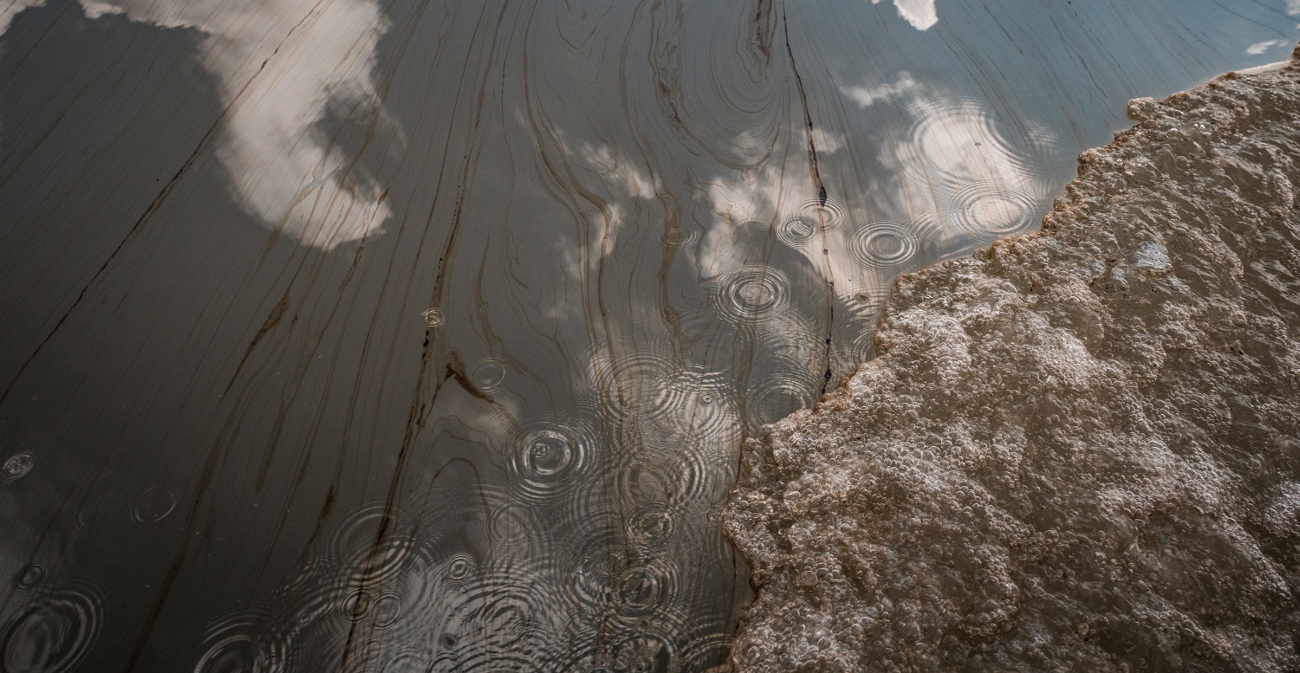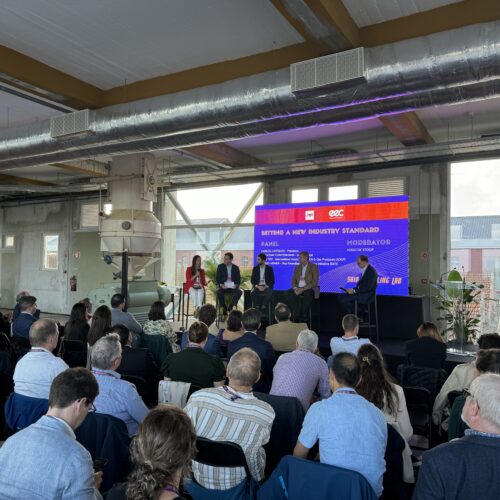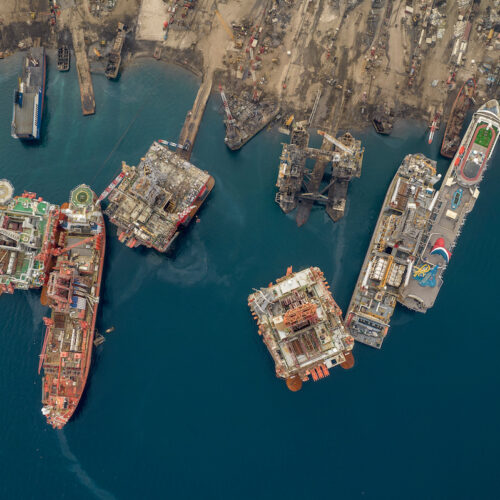THE ENVIRONMENTAL COSTS
In addition to taking a huge toll on the health and lives of workers, shipbreaking is a highly polluting industry. In South Asia, ships are grounded before they are pulled and broken apart on tidal mudflats. On these once pristine beaches, coastal ecosystems and the local communities depending on them are devastated by toxic spills and other types of pollution caused by the breaking operations. As long as shipbreaking is done by way of beaching, the environment will suffer.
The beaches of Chattogram, Alang-Sosiya and Gadani are toxic hotspots. Because ship owners rarely provide the necessary documentation of the hazardous materials that are built in the ship’s structure, no precaution is taken when removing them from the ships. Due to the lack of proper waste reception facilities, the toxics are dumped on the spot and contaminate the beach sands and sediments. The scraps from the ships, stacked on the seashore, contribute to the accumulation of rust and metal remnants in the soil. In India, the concentration of heavy metals in the Alang-Sosiya area is twenty times higher than the Indian average.
Currents and tides distribute the pollutants not only along the coast, , but also further away from the beach during the monsoon season, reaching nearby mangroves, canals, rivers, and agricultural soils. This causes serious devastating environmental effects on local ecosystems and agriculture harm with long-term effects for occupational, public and environmental health. Oil residues are mixed with seawater, causing serious damage by reducing light intensity beneath the water surface. Pollutants affect the growth of marine biodiversity and alter permanently the physiochemical properties of the coastal habitat. Dozens of aquatic species have been killed, destroying the livelihoods of surrounding fishing communities . According to the Marine Institute of the University of Chittagong in Bangladesh, the shipbreaking industry is responsible for wiping out 21 species of fish and crustacean, and endangering 11 other species.
Blow-torch cutting through layers of paints that contain heavy metals and other toxics pollutes the air and exposes workers to toxic fumes. Burning of cables and release of ozone depleting substances also cause air pollution. Furthermore, in South Asia, the re-rolling of steel is preferred to smelting. Whilst the first is less energy consuming, the release of toxic fumes, including leaded vapours, when steel plates covered with paints are not heated at high temperatures is yet another source of serious pollution and can also cause chronic cumulative lead poisoning. Compared to the use of iron ore to produce steel products, scrap steel has obvious advantages in terms of reduced CO2 emissions. However, the re- rolling process used in South Asia to process contaminated scrap steel causes harm not only to the environment but also to workers’ health. The steel products are also of lower quality, steel is down-cycled resulting in its potentially unsafe use and reducing the possibility of extending its lifecycle.

In Bangladesh, thousands of protected mangrove trees have been cut down to make build up shipbreaking yards way for ships . 14.000 mangroves, planted with support from the United Nations, were illegally cut in 2009 in Sitakund to make space for additional shipbreaking yards. The High Court of Bangladesh directed the following year four shipbreaking yards to close and to replant the mangroves. It took until October 2013 for the yards to stop operating - the mangroves were, however, never replaced. According to an estimate by YPSA, in the past few years at least 60.000 mangrove trees have been cut along the 14km of coast near the city of Chattogram, Bangladesh, to make way for more ships. The cutting of mangroves has extremely negative consequences as they are essential for this fragile ecosystem and are the last barrier against the devastating effects of typhoons and floods.

RECOMMENDED READINGS
Latest News

Press Release – Ship Recycling Lab’s 2nd Edition: when ethical leadership and cutting edge technology meet, sustainable ship recycling is on the horizon!
Over 100 participants met in Lisbon on 9-10 October.
... Read More


